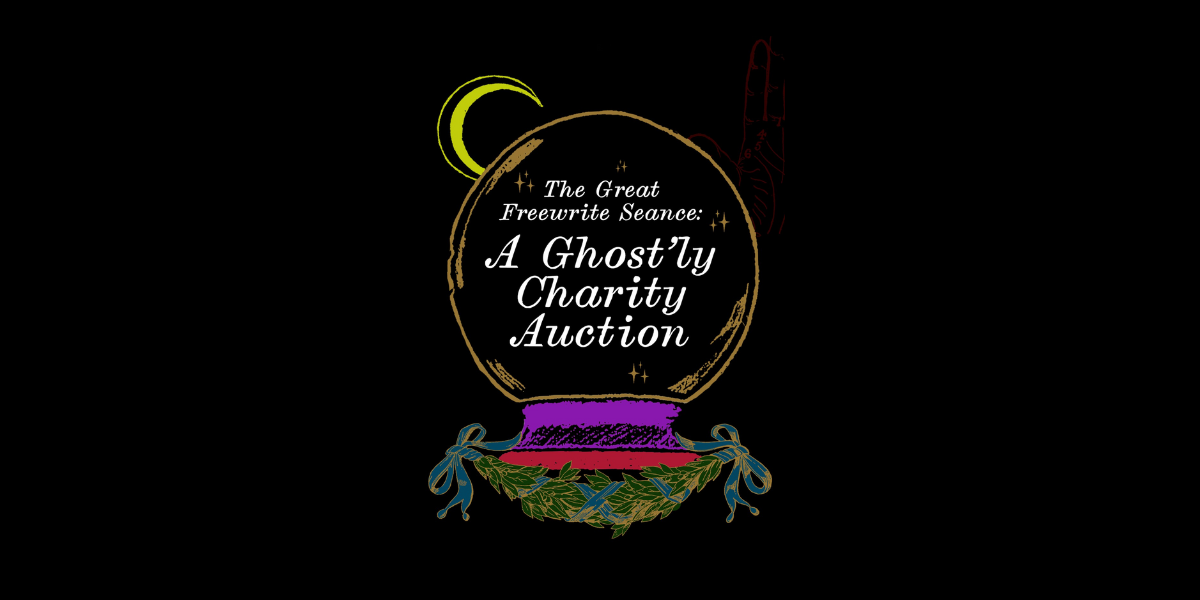Back in the very early 2000s, when the internet was still young, YouTube didn’t exist, and Facebook was just a twinkle in Mark Zuckerberg’s eye, I joined a Yahoo Group for writers.
Why? I was writing fiction that I wanted to publish online – but first, I wanted to get it peer-reviewed. And not long after I signed up, one of the other writers reached out to me and offered to help me with my 30,000-word novella. She said she saw promise - and some things that needed fixing. I accepted her offer and began an amazing friendship that stands strong to this day.
It still amazes me that this stranger from across the world was willing to give up her time, for free, to help me hone my craft. It took several months of rewrites. She didn’t pull any punches with her feedback, but she was always constructive and kind, and her advice was invaluable, as was the input from the other writers after I finally reached the stage where I was happy to release my story to the wider group.
I’ve been a big fan of online writing communities ever since. If you’ve never joined one before, you might not be aware of the full range of benefits you can get by signing up.
Support
Writing is a pastime (or profession) with a unique set of challenges that only another writer can truly understand. Being part of an online community gives you the chance to interact with others who understand your struggles, frustrations and challenges, and who can offer helpful encouragement and wisdom. It provides you with a group of people with whom you can discuss and explore your ideas and your roadblocks, and who can encourage you to keep going when you’ve hit a creative brick wall.
Critique
When you’re emotionally involved in a piece of writing, it can be hard to assess it objectively. Not sure if your plot makes sense? Do your characters ring true? Are their motivations plausible? Family and friends often lack the technical ability or the courage to provide truly constructive feedback, whereas an online community provides you with a diverse group of writers with a wide range of experience who can help you gain valuable insight on your strengths and weaknesses.
Knowledge
Every writer brings something new to a community in terms of experience, genre, format, perspective, tips, processes and ideas. A writing community gives you a forum to exchange knowledge and take away the most useful tidbits to apply to your own writing. Offering to critique someone’s work can also be a valuable learning experience which gives you exposure to a plethora of writing styles. Many communities also offer their members access to learning resources.
Resilience
One of the things any writer needs to learn to deal with is criticism - no writer is going to be accepted by every publisher or enjoyed by every reader. Writing is a very personal and emotional activity, and it can be difficult to hear negative things about your work, and scary to share it with strangers. Good writing communities will help you build your resilience to feedback by being constructive, thoughtful and helpful.
Marketing
If you’re going down the self-publishing route, you’ll need some marketing skills, and being part of an online community puts you in contact with other writers who have been there, done that, and can share what has worked for them. Most communities also have avenues through which you can promote your own books to other members.
If you’re keen to experience the support, companionship and knowledge that comes from joining an online writing community, here’s a list of the ten best groups you can join right now:
1. Scribophile
One of the world’s largest and most active communities, Scribophile operates on a karma system, whereby you have to critique others’ work before you can submit your own. However, if you pay for premium access ($9 per month or $65 per year), you get unlimited submissions and an ad-free experience. Scribophile also offers the opportunity to compete in writing contests (for cash!). All levels of writing ability are welcomed and almost every genre covered.
2. Insecure Writers’ Support Group
This community was created by sci-fi author Alex Cavanaugh, who realized that there were a lot of lost souls out there scouring the internet for help with their writing. Today, it has a Facebook group with over 4000 members and a mission “to share and encourage”. The community’s website boasts a wealth of information including links to writing tips, publisher lists, marketing guides and contests. There’s a weekly newsletter and even a free guide to publishing and beyond.
3. Absolute Write Water Cooler
If you’re looking for a purely forum-style group, then Absolute Write Water Cooler is a great place to start. With almost 68,000 members at the time of writing, it’s extremely active, well moderated, and there are threads on everything from writer’s block and grammar to publishing and freelancing. Plenty of writing formats are covered including podcasts, graphic novels and scriptwriting, to name a few. There are dozens of discussions about writing-related topics to get involved in, and a section where you can find yourself a beta reader, writing buddy or mentor.
4. Chronicles
This community is the largest forum that caters specifically to science fiction and fantasy writers. Aside from the writing forums that offer workshops, critiques, challenges and resources, it’s a great place to discuss the genre as a whole. Topics cover TV and film, featured authors, the publishing industry and more.
5. The Next Big Writer
If you’re focused on getting your work critiqued, The Next Big Writer offers an international audience of authors – many of them published – to provide you with feedback on your writing and support with every aspect of your craft. This forum isn’t free but comes with a rich list of features for the membership ($8.95 per month, $21.95 per quarter or $69.95 per year) including guaranteed feedback, unlimited posting, access to premium groups, discounts on classes and entry into site competitions.
6. She Writes
Looking for a supportive community of female writers? She Writes might be the right one for you. It’s the largest online writing community exclusively for women. Once you’ve joined, you can follow specific groups and content topics, post your own blog and read the articles posted by other members (more than 30,000 available). She Writes also operates its own self-publishing platform, where you can invest in professional coaching, editing, e-book creation and printing.
7. Nanowrimo
Sometimes you need a deadline to give you that extra bit of motivation. Nanowrimo stands for National November Writing Month. Started in 1999 by freelance writer Chris Baty, it’s an online novel-writing challenge held from 1–30 November every year, with the objective of writing a 50,000-word novel. The community aspect comes in the form of camaraderie across social media platforms like Facebook and Twitter, and you can also join theNanowrimo forums to discuss all aspects of the novel writing process and share your journey with other participants. If the timing and word count don’t suit, tryCamp Nanowrimo instead, which holds virtual writers’ retreats in April and July for projects of any format and length.
8. Talentville
Screenwriters – this community’s especially for you. Talentville is designed to help aspiring screenwriters not only hone their craft through collaboration and education but also to build connections within the industry. With over 10,000 screenwriters and more than 200 industry professionals registered, one of Talentville’s goals is to actively promote worthy work to agents, managers and producers. Membership ranges from free (with posting limitations) to $99 per year.
9. Agent Query Connect
If you’ve already finished your manuscript, this online social network could be your best choice. It specializes in helping you get your book published, with discussion topics and helpful resources covering everything from writing query letters and finding agents to self-publishing and promotion. You can even get your query letter peer-reviewed.
10. Reddit
Reddit is a vast social network made up of subreddits that focus on every topic imaginable, and there are plenty of writing-related discussion boards in which you can participate. It’s free, and sometimes unmoderated, but great if you have a very niche area of interest or are looking for a large and diverse group. With almost 700,000 subscribers, r/writing is a great place to start.
BONUS:
11. Freewrite Insiders
Our Freewrite Insider group has over 30,000 writers all over the world who are serious about improving their writing process. From free resources, quality content, and exclusive discounts on the latest writing tools, this is one email newsletter that every writer who is serious about their craft needs to be part of.
About the author:
Claire Wilkins is a freelance copywriter and editor from New Zealand. She loves to write about travel, health, home, and proper punctuation. After a career in financial services spanning almost three decades, Claire left the corporate world behind to start Unmistakable - her writing and editing business. She creates website copy, blogs, and newsletters for creative agencies and small businesses, and specialises in polishing existing content until it shines. In her spare time, Claire enjoys cloud-spotting, singing in the car and editing video.





























